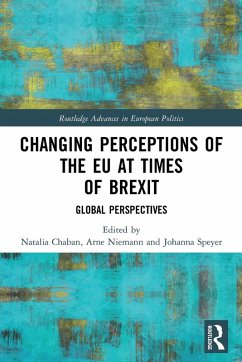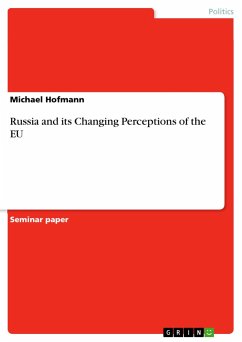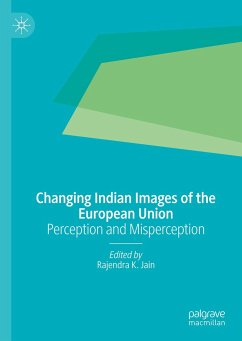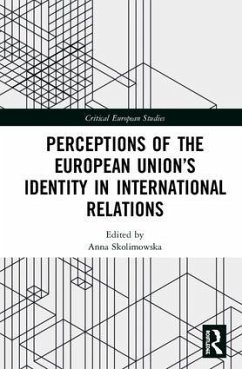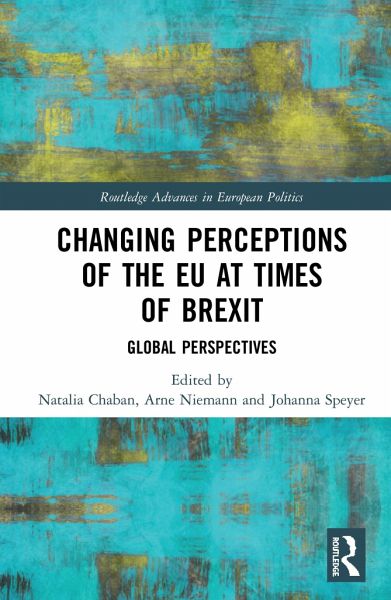
Changing Perceptions of the EU at Times of Brexit
Global Perspectives
Herausgeber: Chaban, Natalia; Speyer, Johanna; Niemann, Arne
Versandkostenfrei!
Versandfertig in 1-2 Wochen
169,99 €
inkl. MwSt.
Weitere Ausgaben:

PAYBACK Punkte
85 °P sammeln!
This volume brings together contributions that conceptualize and measure EU perceptions in the strategic regions around the world in the aftermath of the UK referendum. Contributors assess the evolution of EU perceptions in each location and discuss how their findings may contribute to crafting foreign policy options for the "new EU-27". Brexit is very likely to have a substantial bearing on EU external policy, not merely because of the loss of a major member state with a special relationship to the US and the Commonwealth, but also because it challenges the integrational success story that th...
This volume brings together contributions that conceptualize and measure EU perceptions in the strategic regions around the world in the aftermath of the UK referendum. Contributors assess the evolution of EU perceptions in each location and discuss how their findings may contribute to crafting foreign policy options for the "new EU-27". Brexit is very likely to have a substantial bearing on EU external policy, not merely because of the loss of a major member state with a special relationship to the US and the Commonwealth, but also because it challenges the integrational success story that the EU strives to embody. This book thus serves a dual purpose: on the one hand it broadens the recent studies on Brexit by focusing on external partners' reactions, and on the other it allows for an innovative evaluation of policy options for EU foreign policy. Based on a solid theoretical foundation and empirically rich data, it constitutes an innovative and timely addition to the evolving debate on Brexit and its consequences. This book will be of key interest to scholars and students of European politics, Brexit, British politics, EU politics, comparative politics and international relations.





